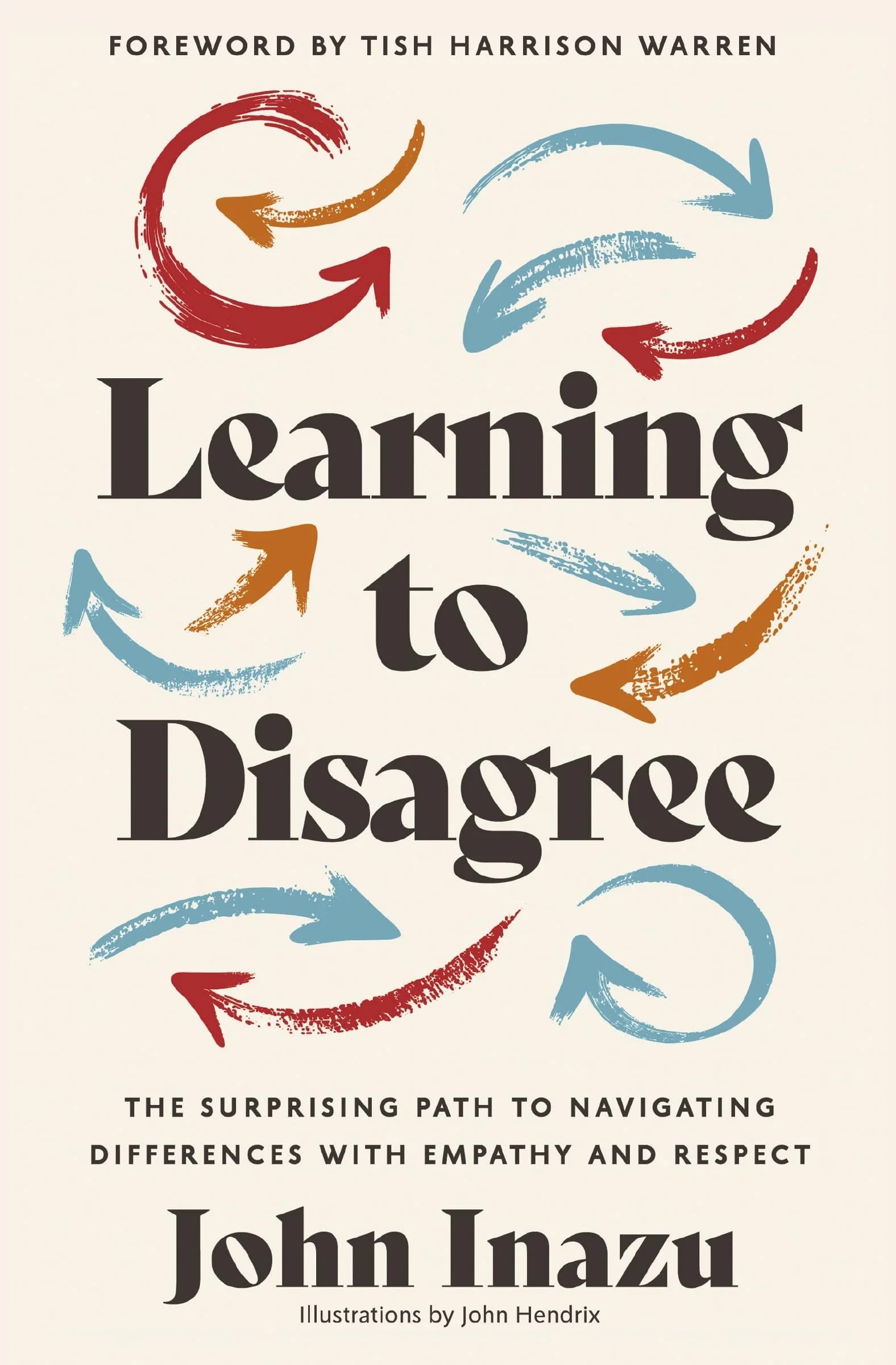Learning to Disagree
We are not very good at disagreement: we view our adversaries not only as wrong but increasingly as evil, we resist notions of forgiveness, and we distrust institutions that try to mediate our disagreements.
The book’s narrative flow follows the course of an academic year. Each chapter addresses a question for each month:
August: How Do We Learn Empathy?
September: Can We Know What’s Fair?
October: What Happens When We Can’t Compromise?
November: Can We Have Difficult Conversations?
December: Can We See People Instead of Problems?
January: Can We Trust Faith?
February: Can Anything Be Neutral?
March: Where is the Line Between Wrong and Evil?
April: Is Forgiveness Possible?
May: Can We Be Friends?
The questions arise out of the curricular and extracurricular rhythms of my life. In the classroom, these questions are framed through cases and discussions from my courses in Criminal Law (which explores how and why we punish people who have done bad and sometimes horrible things) and Law and Religion (which tackles the constitutional framework for how we speak and act on the deepest questions of meaning and existence in a democratic society where not everyone shares our convictions).
The extracurricular parts of my life also affect how I come to see the issues in Learning to Disagree. As I like to remind my students, professors are people, too. Inevitably, my own experiences and idiosyncrasies make this book what it is. Yes, I teach students and write books. I also navigate complicated family dynamics, freak out in awkward social settings, and slip on blueberries.
The stories and vignettes are meant to complicate your assumptions, introduce arguments from “the other side,” and illustrate how people can recognize good faith disagreements without surrendering their most strongly held beliefs. This book is about holding in tension clarity and ambiguity, tolerance and judgment, confidence and uncertainty. It’s about what each of us confronts in our daily encounters with others who differ from us.
Learning to Disagree won’t tell you what to believe, but it will change the way you engage with disagreement.
Praise for Learning to Disagree:
A wonderful, quirky, beautifully written, and often quite funny ode to learning how to live with deep differences. I absolutely loved this book. John Inazu writes with the kind of verve, personality, and attention to character that made me feel like I was reading a novel. Unlike most books, this one might actually change how you argue, fight, love, and even hope. It’s that good.
Shadi Hamid, columnist and editorial board member, Washington Post
My number one book to law students is now going to be Learning to Disagree because I think it will teach you more how to go into law school with the right frame of mind and openness to what they’re going to try to teach you than anything else I’ve read.
Sarah Isgur, Advisory Opinions
Not only helpful, but an absolute delight to read. In a time when there are so few examples of nuance and compassion, John Inazu’s voice is one to pay close attention to.
Justin Whitmel Earley, business lawyer; speaker; bestselling author
This wonderful, deeply personal, highly entertaining book takes readers inside the brilliant mind and loving heart of an outstanding legal scholar who wants us to grow genuine friendships, even when we have principled disagreements. Here John Inazu shares everyday encounters from law classrooms, faculty offices, local coffee shops, and life at home with his family to illustrate how challenging it is to show empathy, pursue reconciliation, and offer forgiveness in today's polarized society. Rather than demonizing people who think differently or backing away from hard conversations on divisive moral issues--the way many people do--Inazu shows us how to move into today's cultural conflicts with greater charity.
Philip Ryken, president, Wheaton College
Using his law school classroom and personal anecdotes, John Inazu highlights the values of empathy, compassion, forgiveness, and looking for the good in others as some of the most important tools for navigating disagreements in ways that do not dehumanize those whose viewpoints may be different from one’s own. As a college president whose role is to cultivate a campus environment that welcomes and supports a multitude of perspectives, I find Learning to Disagree to be a valuable resource for anyone seeking better dialogue across differences.
Lori S. White, president, DePauw University
